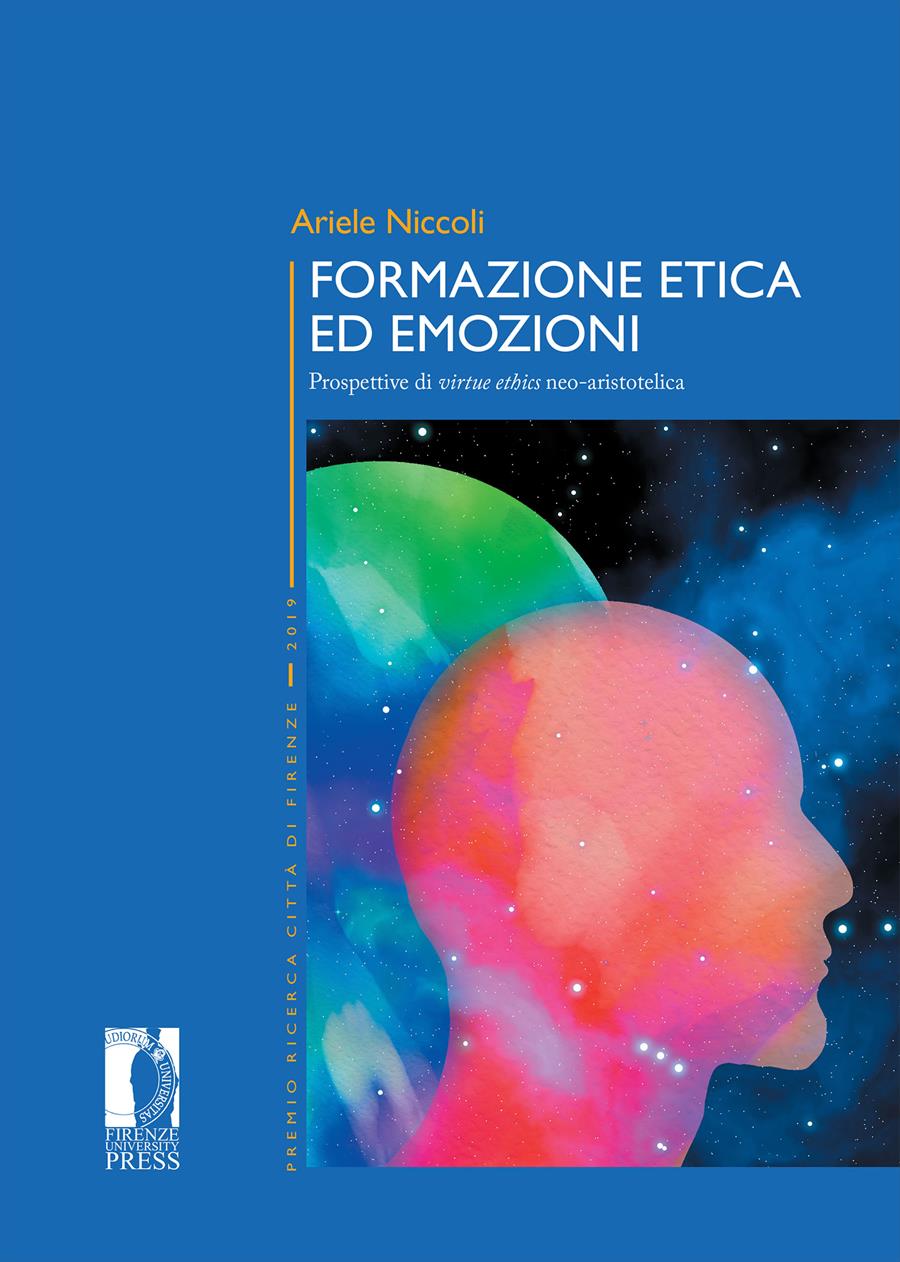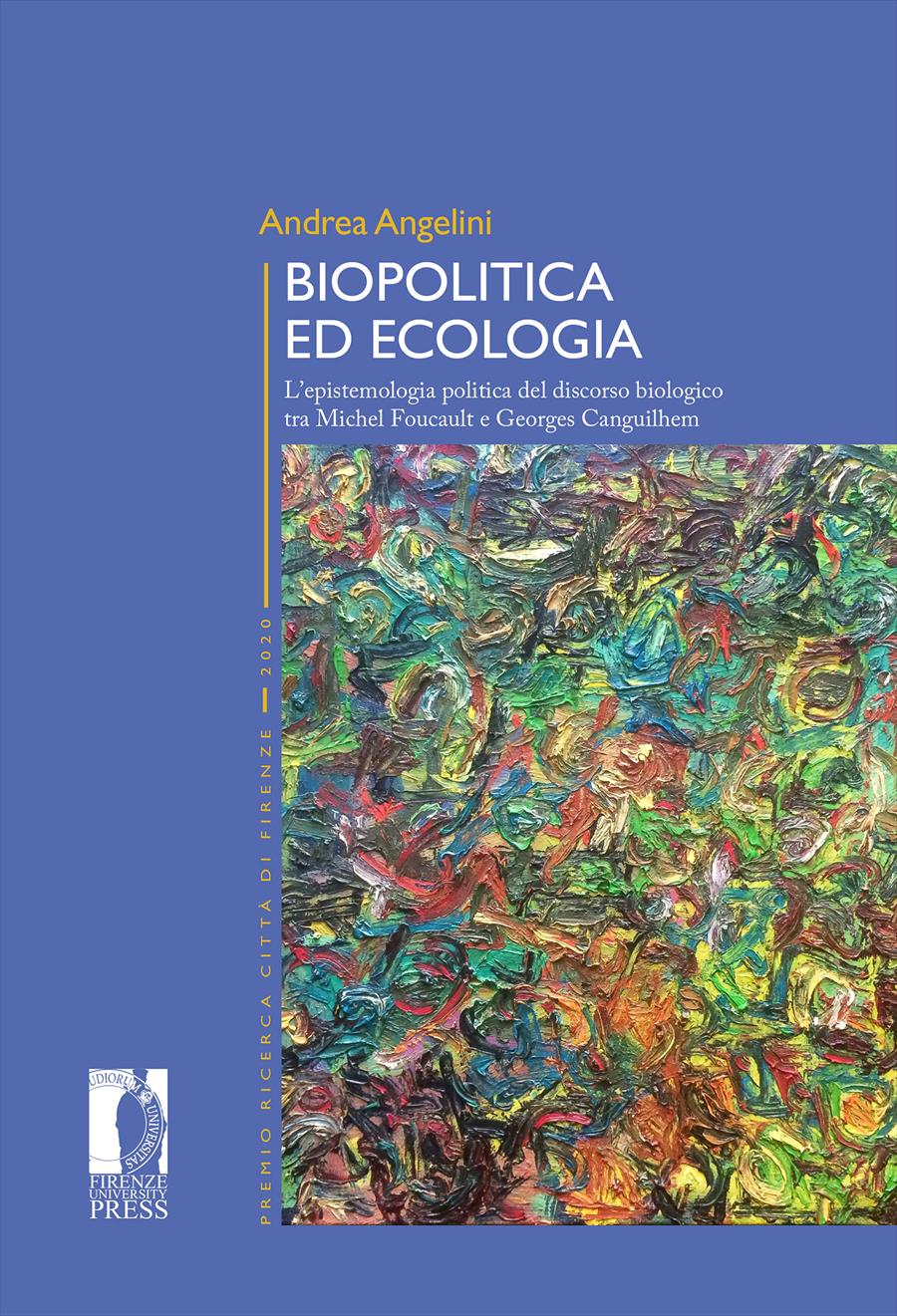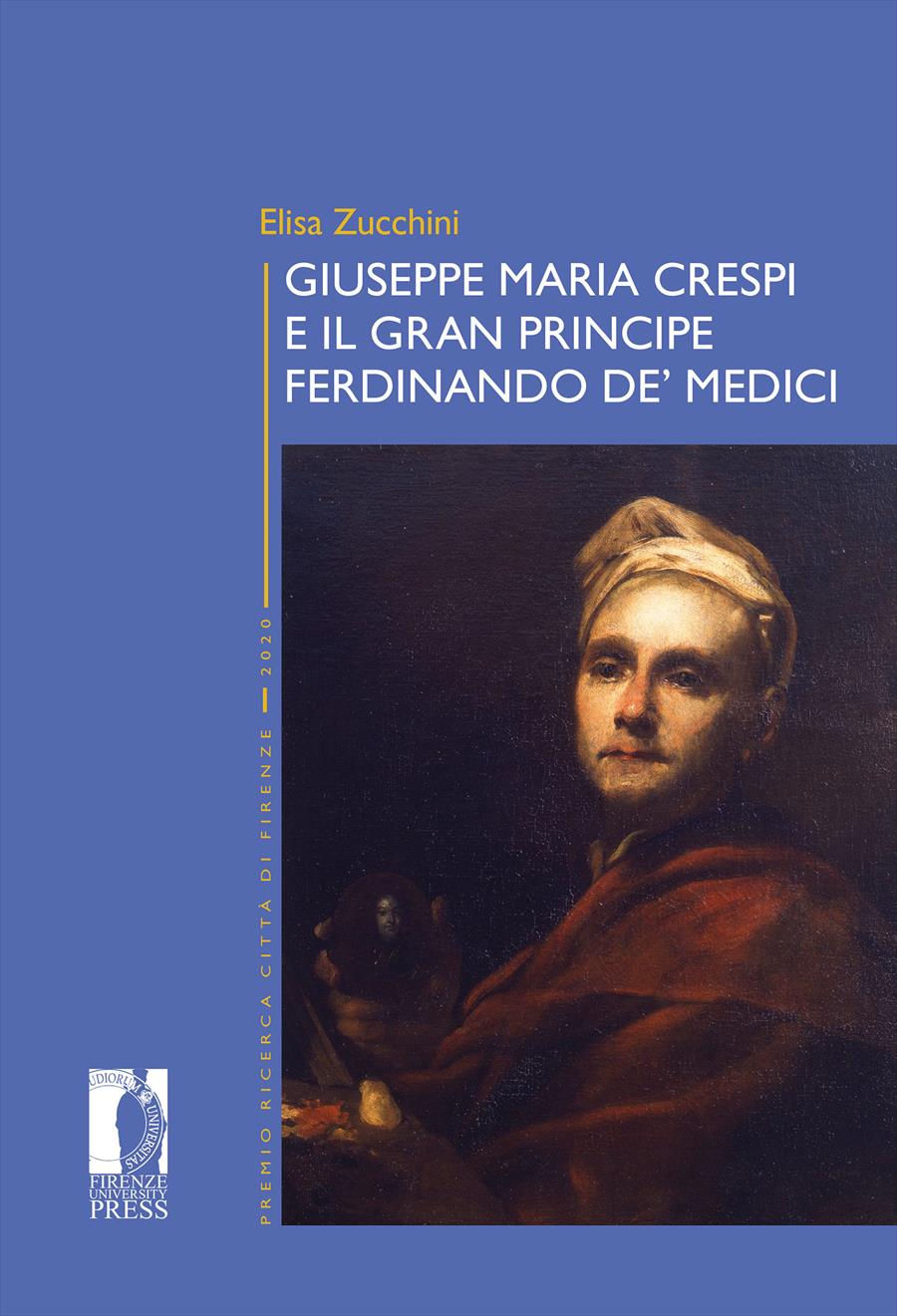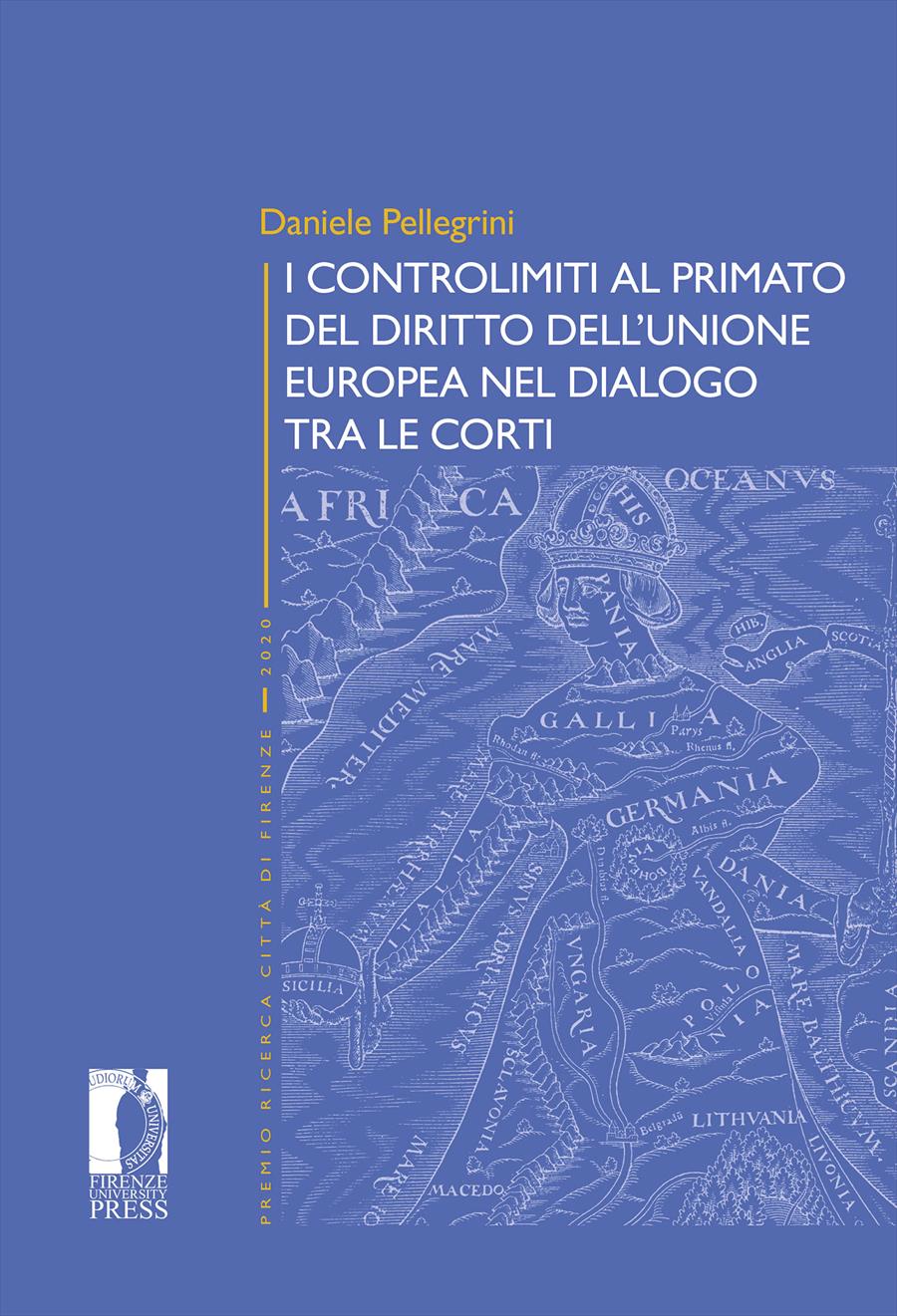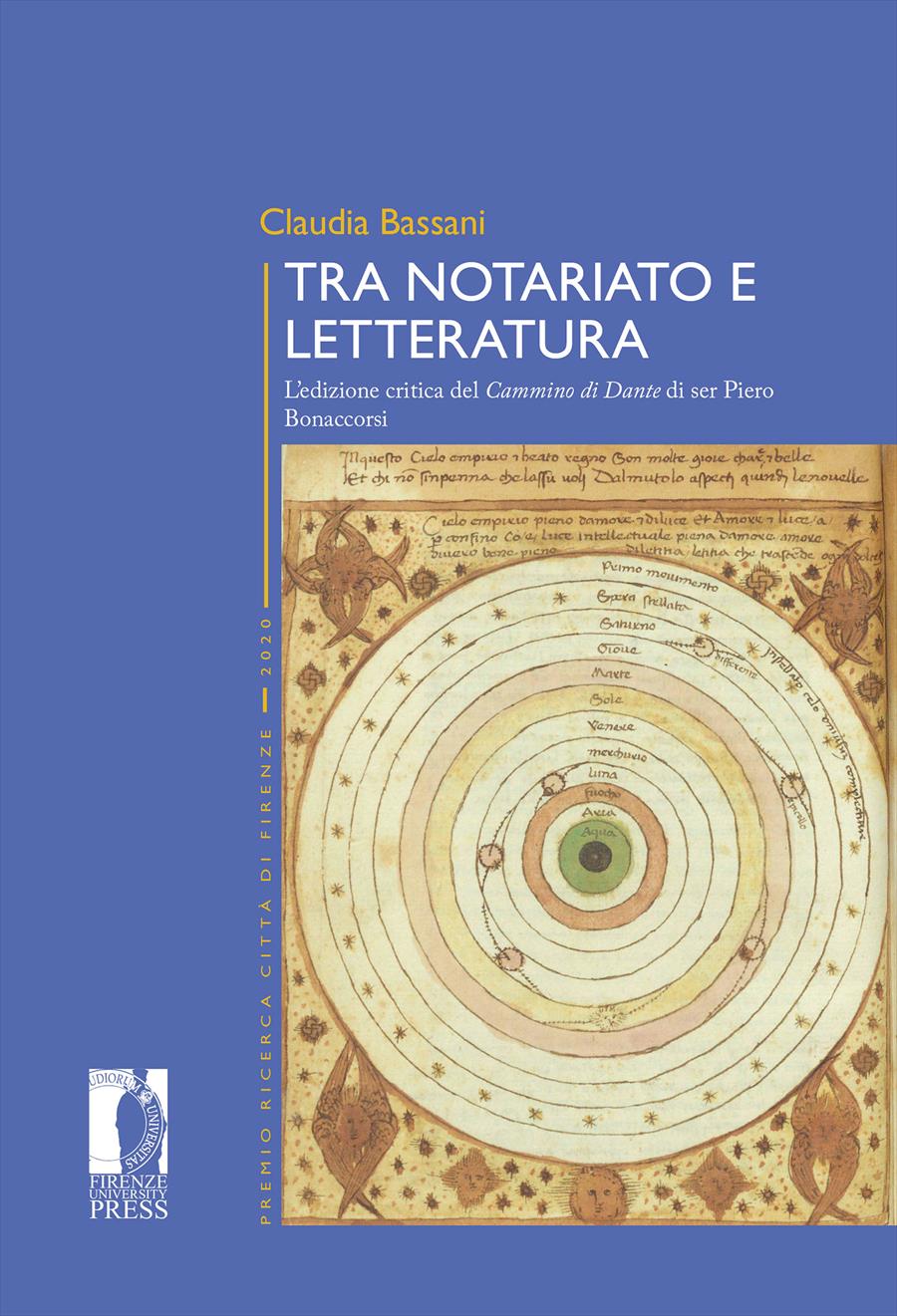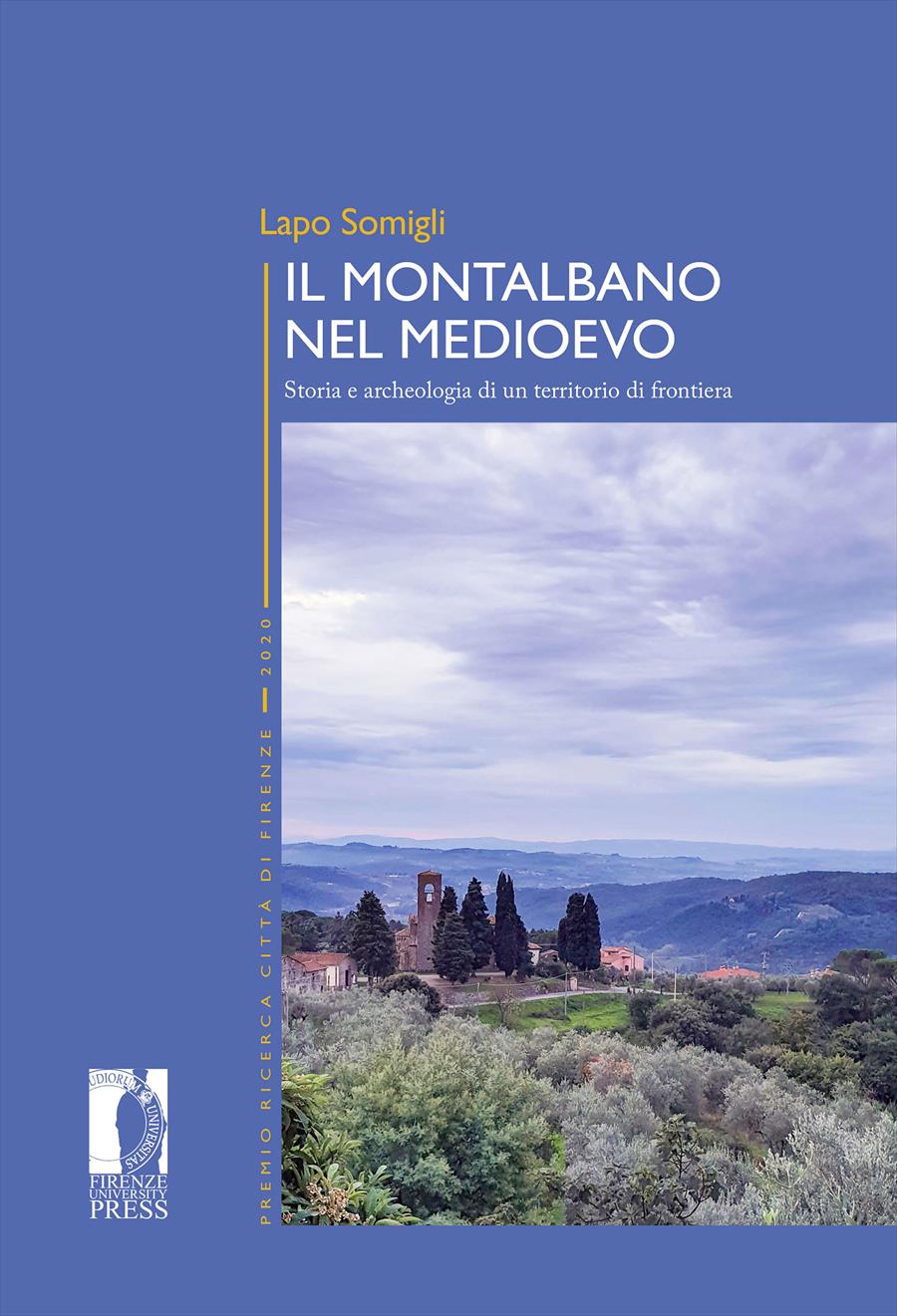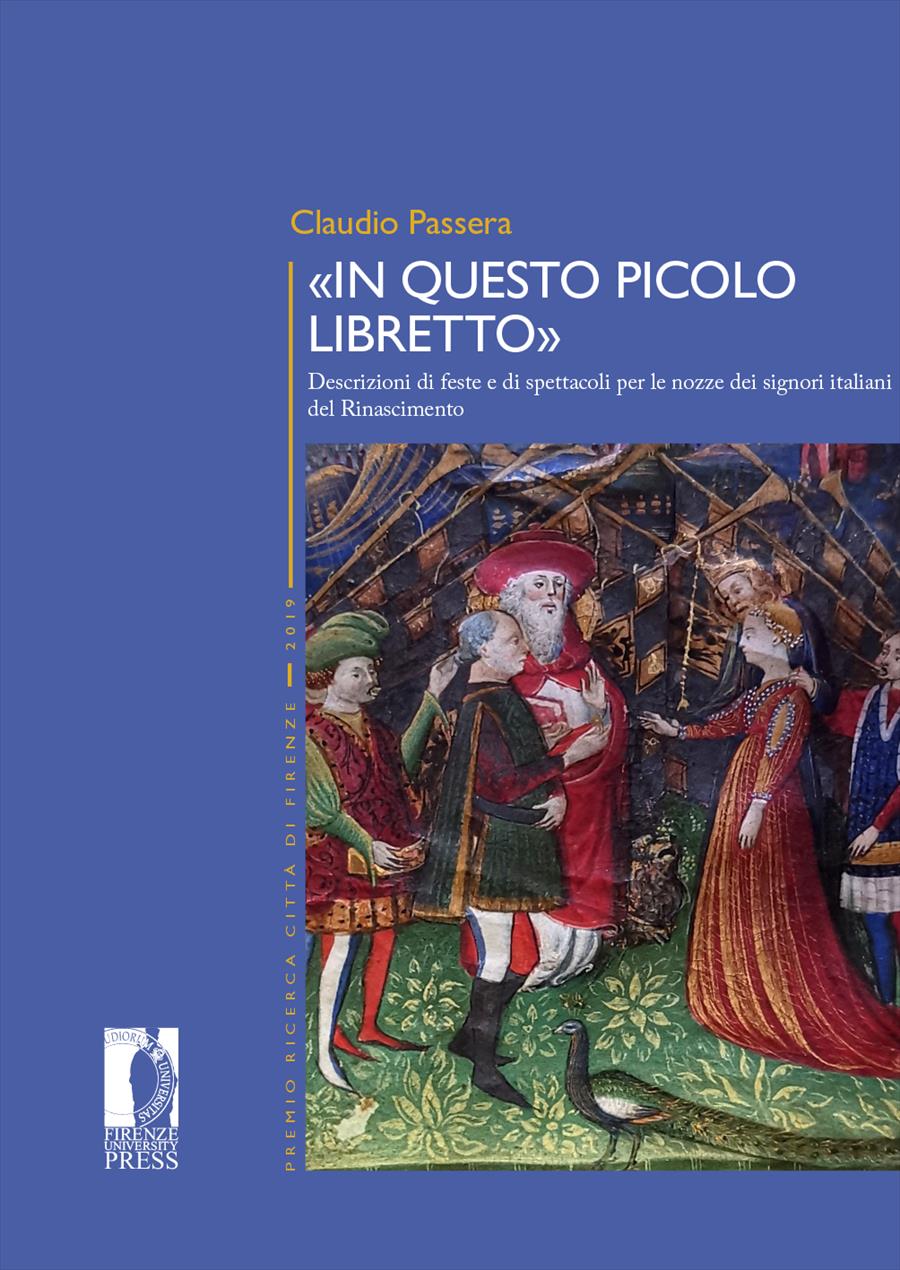Formazione etica ed emozioni
Prospettive di virtue ethics neo-aristotelica
- Ariele Niccoli,
L’affettività – specialmente le emozioni – si è rivelata un punto cruciale per la formazione etica. Questo libro si propone di chiarificare le tesi di educazione emotiva espresse dalla Virtue Ethics neoaristotelica, integrando filosofia dell’educazione, filosofia delle emozioni ed epistemologia morale. La Virtue Ethics, infatti, rispetto alle etiche deontologiche e utilitaristico-consequenzialiste, offre il quadro più convincente per pensare il rapporto tra educazione, emozioni ed etica. Lo studio analizza l’approccio cognitivo-valutativo in filosofia delle emozioni e affronta la sfida antirazionalista, posta sulla scorta di evidenze empiriche, sul rapporto tra emozioni e giudizi morali. Le tesi antirazionaliste, si sostiene, sono incompatibili con il proposito stesso di formare le emozioni sulla base di ragioni morali. Vengono difese infine due tesi educative: che tutte le disposizioni emotive – sia ‘positive’ che ‘negative’ – dovrebbero essere coltivate, e che ogni tipo di disposizione emotiva ammette una forma valida sul piano etico.
- Parole chiave:
- emotions,
- virtue ethics,
- moral education,
- Aristotle,
- DOI: 10.36253/978-88-5518-117-4
- Collana: Premio Ricerca «Città di Firenze»
- Comitato scientifico
- Lingua: Italiano
- Argomento: Filosofia
Italian University Line, Italy - ORCID: 0000-0001-7869-8451
- ALGOE S. B., HAIDT J., Witnessing Excellence in Action: the ‘Other-praising’ Emotions of Elevation, Gratitude, and Admiration, in “The Journal of Positive Psychology”, 4, 2009, pp. 105-127.
- ANNACONTINI G., Affettività e rapporto con l’extrascuola, in M. BALDACCI (a cura di), I profili emozionali dei modelli didattici, Milano, Angeli, 2009, pp. 111-134.
- ANNAS J., Intelligent Virtue, Oxford, Oxford University Press, 2011.
- ANNAS J., The Morality of Happiness, Oxford, Oxford University Press, 1993, trad. it. La morale della felicità. In Aristotele e nei filosofi dell’età ellenistica, Milano, Vita e Pensiero, 1998.
- ANSCOMBE G. E. M., Modern Moral Philosophy, in “Philosophy”, 124, 1958, pp. 1-19, trad. it., Filosofia morale moderna, in “Iride”, 1, 2008, pp.47-70.
- ARISTOTELE, Etica Nicomachea, a cura di C. NATALI, Roma-Bari, Laterza, 1999.
- ARISTOTELE, Metafisica, a cura di E. BERTI, Bari-Roma, Laterza, 2017.
- ARISTOTELE, Retorica, a cura di F. CANNAVÒ, Milano, Bompiani, 2014.
- ARTHUR J., KRISTJÁNSSON K., HARRISON T., SANDERS W., WRIGHT D., Teaching Character and Virtue in Schools, London, Routledge, 2016.
- ATHANASSOULIS N., A Response to Harman: Virtue Ethics and Character Traits, in “Proceedings of the Aristotelian Society” (New Series), 100, 2000, pp. 215-21.
- BALDUZZI E., La pedagogia alla prova della virtù. Emozioni, empatia e perdono nella pratica educativa, Milano, Vita e Pensiero, 2015.
- BARON M., PETTIT P., SLOTE M., Three Methods of Ethics, Oxford, Blackwell, 1997.
- BECKER L. C., A New Stoicism, Princeton, Princeton University Press, 1998.
- BEN ZE’EV A., The Sublety of Emotions, Cambridge, MA, MIT Press, 2000.
- BERTI E. (a cura di), Tradizione e attualità della filosofia pratica, Genova, Marietti, 1988.
- BERTI E., Filosofia pratica, Napoli, Guida, 2004.
- BERTI E., La ricezione delle virtù dianoetiche nell’ermeneutica contemporanea, in “Paradigmi”, 57, 2001, pp. 375-392.
- BESSER-JONES L., SLOTE M., The Routledge Companion to Virtue Ethics, New York, Routledge, 2015.
- BORTOLOTTI L., Does reflection lead to wise choises?, in “Philosophical Explorations”, 3, 2011, pp. 297-313.
- BRADY M., Emotional Insight. The Epistemic Role of Emotional Experience, New York, Oxford University Press, 2013.
- CALHOUN C., An Apology for Moral Shame, in “Journal of Political Philosophy”, 11, 2004, pp. 1-20.
- CAMBI F., FEDERIGHI P., MARIANI A. (a cura di), La pedagogia critica e laica a Firenze: 1950-2015. Modelli. Metamorfosi. Figure, Firenze, Firenze University press, 2016.
- CAMBI F., Filosofe dell’educazione come eredi del razionalismo critico. Da Colicchi a Fadda, da Xodo a Mortari: quattro modelli, in “Studi sulla formazione”, 1, 2014, pp. 57-63.
- CAMBI F., L’epistemologia pedagogica oggi, in “Studi sulla formazione”, 1, 2008, pp. 157-163.
- CAMBI F., La forza delle emozioni: per la cura di sé, Ospedaletto, Pacini, 2015.
- CAMBI F., La ricerca in pedagogia, Firenze, Le Monnier, 1976.
- CAMBI F., Manuale di filosofia dell’educazione, Roma-Bari, Laterza, 2005.
- CAMBI F., Mente e affetti nell’educazione contemporanea, Roma, Armando, 1996.
- CAMPODONICO A., CROCE M., VACCAREZZA M. S., Etica delle virtù. Un’introduzione, Roma, Carocci, 2017.
- CANDIOTTO L., Boosting cooperation. The beneficial function of positive emotions in dialogical inquiry, in “Humana.Mente Journal of Philosophical Studies”, 33, 2017, pp. 59-82.
- CARR D., ARTHUR J., KRISTJÁNSSON K. (a cura di), Varieties of Virtue Ethics, London, Palgrave Macmillan, 2017.
- CARR D., Educating the Virtues, Essay on the Philosophical Psychology of Moral Development and Education, London, Routledge, 1991.
- CARR D., J. STEUTEL (a cura di), Virtue Ethics and Moral Education, London, Routledge, 1999.
- CATTANEI E., “Al di sotto” di emozioni e virtù? La “bestialità” in Platone e in Aristotele, in S. LANGELLA, M. S. VACCAREZZA (a cura di), Emozioni e virtù. Percorsi e prospettive di un tema classico, Napoli-Salerno, Orthotes, 2014, pp., 23-44.
- CHRISTEN M. (a cura di), Empirically Informed Ethics, Morality between Facts and Norms, Cham, Springer, 2014.
- CLARK S., SIM and the City: Rationalism in Psychology and Philosophy and Haidt’s Account of Moral Judgments, in “Philosophical Psychology”, 21, 2008, pp. 799-820.
- COLICCHI E. (a cura di), Per una pedagogia critica. Dimensioni teoriche e prospettive pratiche, Roma, Carocci, 2009.
- COLICCHI E., La teoria pedagogica, in BALDACCI M., COLICCHI E. (a cura di), Teoria e prassi in pedagogia. Questioni epistemologiche, Roma, Carocci, 2016.
- COLICCHI E., Razionalismo Critico, in F. CAMBI, L. SANTELLI BECCEGATO (a cura di), Modelli di formazione, Torino, UTET, 2004, pp. 59-80.
- COLICCHI E., Ricerca educativa e razionalità pratica, in “Studi sulla formazione”, 1, 2014, pp. 47-54.
- COLOMBETTI G., The Feeling Body. Affective Science meets the Enactive Mind, Cambridge, MA, MIT Press.
- CONTINI M., Per una pedagogia delle emozioni, Scandicci, La Nuova Italia, 1992.
- COVA F., DEONNA J., SANDER D., Introduction: Moral Emotions, in “Topoi”, 34, 2015, pp. 397-400.
- COX D., LA CAZE M., LEVINE M., Integrity, in “The Stanford Encyclopedia of Philosophy” (Spring 2017 Edition), E. N. ZALTA (a cura di), URL: https://plato.stanford.edu/archives/spr2017/entries/integrity/.
- COX D., LA CAZE M., LEVINE M., Integrity, in S. VAN HOOFT (a cura di), The Handbook of Virtue Ethics, Durham, Acumen Press, 2014, pp. 200-209.
- CRANE T. (a cura di), The Contents of Experience: Essay on Perception, Cambridge, Cambridge University Press, 1992.
- CRANE T., CRAIG F., The Problem of Perception, in “The Stanford Encyclopedia of Philosophy”, E. N. ZALTA (a cura di), URL: https://plato.stanford.edu/archives/spr2017/entries/perception-problem/.
- CROCE M., VACCAREZZA M. S., Educating through exemplars: Alternative paths to virtue, in “Theory and Research in Education”, 2017.
- CROCE, Epistemologia delle virtù, in “APhEx. Portale italiano di filosofia analitica”, 15, 2017.
- CURREN R., Aristotle’s Educational Politics and the Aristotelian Renaissance in Philosophy of Education, in “Oxford Review of Education”, 36, 2010, pp. 543-559.
- CURZER H. J., Aristotle and the Virtues, Oxford University Press, Oxford, 2012.
- D’ADDELFIO G., Desiderare e fare il bene. Un commento pedagogico all’Etica Nicomachea, Milano, Vita e Pensiero, 2008.
- D’ARMS J., JACOBSON D. (a cura di), Moral Psychology and Human Agency, New York, Oxford University Press, 2015.
- D’ARMS J., JACOBSON D., Sensibility Theory and Projectivism, in D. COPP (a cura di), The Oxford Handbook of Ethical Theory, Oxford, Oxford University Press, 2006, pp. 186-218.
- D’ARMS J., JACOBSON D., The Moralistic Fallacy, on the ‘Appropriateness’ of Emotions, in “Philosophy and Phenomenological Research”, 1, 2000, pp. 65-90.
- DE MONTICELLI R., L’ordine del cuore. Etica e teoria del sentire, Milano, Garzanti, 2003.
- DE SOUSA R, MORTON A., Emotional True, in “Proceedings of the Aristotelian Society. Supplementary Volumes”, 76, 2002, pp. 247-275.
- DE SOUSA R., The Rationality of Emotion, London, MIT Press, 1987.
- DE SOUSA, Moral Emotions, in “Ethical Theory and Moral Practice”, 4, 2001, pp. 109-126.
- DEIGH J., Cognitivism in the Theory of Emotions, in “Ethics”, 104, 1994, pp. 824-854.
- DEONNA J., RODOGNO R., TERONI F., In Defense of Shame, Oxford, Oxford University Press, 2012.
- DEONNA J., TERONI F., From Justified Emotions to Justified Evaluative Judgments, in “Dialogue”, 51, 2012, pp. 55-77.
- DEONNA J., TERONI F., Taking Affective Explanations to Heart, in “Social Science Information”, 3, 2009, pp. 359-377.
- DEONNA J., TERONI F., The Emotions. A Philosophical Introduction, New York, Routledge, 2012.
- DEWEY J., Le fonti di una scienza dell’educazione (1929), trad. it., Firenze, La nuova Italia, 19372.
- DOKIC J., LAMAIRE S., Are Emotions Perceptions of Value?, in “Canadian Journal of Philosophy”, 2, 2013, pp. 227-247.
- DONNINI MACCIÒ M. C., Educazione e filosofia in Aristotele, Torino, Loesher, 1979.
- DORIS J. M., 1998, Persons, Situations and Virtue Ethics, in “Noûs”, 4, 1998, pp. 504-30.
- DORIS J., Lack of Character. Personality and Moral Behaviour, Cambridge, Cambridge University Press, 2002.
- DOUGLASS R. B., MARA G., RICHARDSON H. (a cura di), Liberalism and the Good, London, Routlegde, 1990.
- EKMAN P., Emotions in the Human Face, New York, Pergamon Press, 1972.
- FABBRI M., Istinto, emozione, conoscenza. La centralità dell’esperienza emozionale fra ontogenesi e filogenesi, in “Research Trends in Humanities Education & Philosophy”, 5, 2018, pp. 29-39.
- FABBRI M., La mente emotiva. Narrazioni e sfide evolutive nella civiltà della cura e dell’empatia, in: G. ANNACONTINI, R. GALLELLI (a cura di), Formare altre(i)menti, Bari, Progedit, 2014, pp. 17-38.
- FOOT P., Natural Goodness, Clarendon Press, trad. it., La natura del bene, Bologna, il Mulino, 2007.
- FOOT P., Virtues and Vices, Oxford, Blackwell, 1978, trad. it., Virtù e vizi, Bologna, Il Mulino, 2008.
- FORTENBAUGH W. W., Aristotle on Emotion, London, Duckworth, 2002.
- FRABBONI F., PINTO MINERVA F., Introduzione alla pedagogia generale, Roma-Bari, Laterza, 2003.
- FRANKFURT H., Identification and Wholeheartedness, in FERDINAND SCHOEMAN F. (a cura di), Responsibility, Character, and the Emotions: New Essays in Moral Psychology, New York, Cambridge University Press, 1987, pp. 33-34.
- FRENCH P. A., UHELING, T. E. JR., AND WETTESTEIN, H. K. (a cura di), Midwest Studies in Philosophy Volume XIII. Ethical Theory: Character and Virtue, Notre Dame, University of Notre Dame Press.
- FRIEDMAN M., Feminist Virtue Ethics, Happiness and Moral Luck, in “Hypatia”, 24, 2009, pp. 29-40.
- FRIJDA N., The Laws of Emotions, Mahwah, NJ, Lawrence Erlbaum, 2007.
- FUSSI A., Per una teoria della vergogna, Pisa, ETS, 2018.
- GARDINER S. M., Virtue Ethics. Old and New, Ithaca-London, Cornell University Press, 2005.
- GAUSEL N., LEACH C. W., Concern for Self-image and Social Image in the Management of Moral Failure: Rethinking Shame, in “European Journal of Social Psychology”, 41, 2011, pp. 468-478.
- GIOSI M., L’epistemologia pedagogica anglosassone: tra Kneller, Peters, Sheffler e oltre, Milano, UNICOPLI, 2010.
- GOLDIE P. (a cura di), The Oxford Handbook of Philosophy of Emotions, New York, Oxford University Press, 2010.
- GOLDIE P., The Emotions: A Philosophical Exploration, Oxford, Oxford University Press, 2000.
- GOTTLIEB P., The Virtue of Aristotle’s Ethics, Cambridge, Cambridge University Press, 2009.
- GRANESE A., La condizione teorica. Materiali per la formazione del pedagogista, Milano, UNICOPLI, 1990.
- GRANESE A., La ricerca teorica in pedagogia, Firenze, La Nuova Italia, 1975.
- GRIFFITHS P., What Emotions Really Are: The Problem of Psychological Categories, Chicago, Chicago University Press, 1997.
- HAIDT J., Elevation and the positive psychology of morality, in C. L. M. KEYES, C. L. M., J. HAIDT (a cura di), Flourishing: positive psychology and the life well-lived, Washington, DC, American Psychological Association, 2009, pp. 275-289.
- HAIDT J., The Emotional Dog and its Rational Tail, in “Psychological Review”, 4, 2001, pp. 814-834.
- HARDIE W. F. R., Aristotle’s Doctrine that Virtue is ‘a “Mean”, in “Proceedings of the Aristotelian Society”, 65, 1964, pp. 183-204.
- HARMAN G., 1999, Moral Philosophy Meets Social Psychology: Virtue Ethics and the Fundamental Attribution Error, in “Proceedings of the Aristotelian Society” (New Series), 119, 1999, pp. 316-31.
- HATZIMOYSIS A. (a cura di), Philosophy and The Emotions, Cambridge, Cambridge University Press, 1993.
- HAYDON G., Reason and Virtues, The Paradox of R. S. Peters on Moral Education, in “Journal of Philosophy of Education”, 43, 2010, pp. 143-188.
- HOGARTH R. M., Educating Intuition, Chicago, University of Chicago Press, 2001.
- HOWIE G. e INNOCENTI P. (a cura di), Aristotele. Sull’educazione, Firenze, La Nuova Italia, 1972.
- HUMBERSTONE L., Direction of Fit, in “Mind”, 401, 1992, pp. 59-83.
- HUME D., Opere, vol.1, a cura di E. LECALDANO, Roma-Bari, Laterza, 2008.
- HURSTHOUSE R., PETTIGROVE G., Virtue Ethics, in “The Stanford Encyclopedia of Philosophy” (Winter 2016 Edition), E. N. ZALTA (a cura di), URL: https://plato.stanford.edu/archives/win2016/entries/ethics-virtue.
- IRWIN T. H., Nil Admirari? Uses and Abuses of Admiration, in “Aristotelian Society”, suppl. vol. 89, 2015, pp. 223-248.
- JONES K., Metaethics and Emotions research. A response to Prinz, in “Philosophical Explorations”, 1, 2006, pp. 45-53.
- KAHNEMAN D., FREDERICK S., Representativeness Revisited: Attribute Substitution in Intuitive Judgement, in T. GILOVICH, D. GRIFFIN e D. KAHNEMAN (a cura di), Heuristic and Biases: The Psychology of Intuitive Judgement, New York, Cambridge University Press
- KAMTEKAR R., Situationism and Virtue Ethics on the Content of Our Character, in “Ethics”, 114, 2004, pp. 458-491.
- KASHDAN T. B., BARRETT L. F., MCKNIGHT P. E., Unpacking Emotion Differentiation: Transforming Unpleasant Experience by Perceiving Distinctions in Negativity, in “Current Directions in Psychological Science”, 1, 2015, pp. 10-16.
- KAUPPINEN A., Moral Sentimentalism, in “The Stanford Encyclopedia of Philosophy” (Spring 2017 Edition), E. N. ZALTA (a cura di), URL: https://plato.stanford.edu/archives/spr2017/entries/moral-sentimentalism/.
- KEKES J., Shame and Moral Progress, in FRENCH, P. A., UHELING, T. E. JR., AND WETTESTEIN, H. K. (a cura di), Midwest Studies in Philosophy Volume XIII. Ethical Theory: Character and Virtue, Notre Dame, University of Notre Dame Press, 1988, pp. 282-296.
- KENNY A., Action, Emotion and Will, London, Routledge and Kegan and Paul, 1963.
- KERR D., STURMAN L., SCHULZ W., BURGE B., ICCS (International Civicness and Citizenship Education) 2009 European Report, Amsterdam, IEA, 2010.
- KOHLBERG L., Essays on moral development. Vol. I: The philosophy of moral development, San Francisco, Harper & Row, 1981.
- KOORSGARD C., The Sources of Normativity, New York, Cambridge University Press, 1996.
- KORSGAARD C., Self-Constitution: agency, identity, and integrity, Oxford, Oxford University Press, 2009.
- KRISTJÁNSSON K., An Aristotelian Critique of Situationism, in “Philosophy”, 83, 2008, pp. 55-76.
- KRISTJÁNSSON K., Aristotelian Character Education, London, Routledge, 2015.
- KRISTJÁNSSON K., Aristotle, Emotions, and Education, Ashgate, Aldershot, 2007.
- KRISTJÁNSSON K., Emotion education without ontological commitment?, in “Studies in Philosophy and Education”, 3, 2010, pp. 259-275.
- KRISTJÁNSSON K., Emotions Targeting Moral Exemplarity: Making Sense of the Logical Geography of Admiration, Emulation and Elevation, in “Theory and Research in Education”, 1, 2017, pp. 1-18.
- KRISTJÁNSSON K., Emulation and the use of role models in moral education, in “Journal of Moral Education”, 1, 2006, pp. 37-49.
- KRISTJÁNSSON K., Is Shame an Ugly Emotion? Four Discourses–Two Contrasting Interpretation for Moral Education, in “Studies in Philosophy of Education”, 33, 2014, pp. 495-511.
- KRISTJÁNSSON K., Justifying Emotions. Pride and Jealousy, London, Routledge, 2002.
- KRISTJÁNSSON K., On the Very Idea of ‘Negative Emotions, in “Journal for the Theory of Social Behaviour”, 33, 2003, pp. 351-64.
- KRISTJÁNSSON K., The Self and Its Emotions, Cambridge, Cambridge University Press, 2010.
- KRISTJÁNSSON K., The Trouble with Ambivalent Emotions, in “Philosophy”, 334, 2010, pp. 485-510.
- KRITJÁNSSON K., Virtuous Emotions, Oxford, Oxford University Press, 2018.
- LA CAZE M., Envy and Resentment, in “Philosophical Explorations: An International Journal for the Philosophy of Mind and Action”, 1, 2001, pp. 31-45.
- LANFREDINI R., La struttura fenomenologica dell’emozione, in G. MATTEUCCI, M. PORTERA (a cura di), La natura delle emozioni, Milano-Udine, Mimesis, 2014, pp. 109-128.
- LANGELLA S., VACCAREZZA M. S. (a cura di), Emozioni e virtù. Percorsi e prospettive di un tema classico, Napoli-Salerno, Orthotes, 2014.
- LAPORTA R., La specificità epistemologica della ricerca pedagogica, in “Studi sulla formazione”, 2, 2016, pp. 7-22.
- LEIGHTON S., Inappropriate Passions, in J. MILLER (a cura di), Aristotle’s Nicomachean Ethics. A critical guide, Cambridge, Cambridge University Press, 2011, pp. 211-213.
- LENNARZ H. K., LICHTWARK-ASHOFF A., TIMMERMAN M. E., GRANIC I., Emotion Differentiation and its Relation with Emotional Well-being in Adolescents, in “Cognition and Emotions”, 3, 2017, 651-657.
- LEWIS H. B., Shame and Guilt in Neurosis, New York, International Universities Press, 1971.
- LOVIBOND S., Ethical Formation, Cambridge, MA, Harvard University Press, 2002.
- LYONS W., Emotion, Cambridge, Cambridge University Press, 1980
- MACINTYRE A., After Virtue. A Study in Moral Theory, Notre Dame, University of Notre Dame Press, 1981, trad. it. Dopo la virtù. Saggio di teoria morale, Milano, Feltrinelli, 1988.
- MACINTYRE A., Dependent Rational Animals. Why Human Beings Need the Virtues, Chicago, Carus Publishing Company, 1999, trad. it. Animali razionali dipendenti. Perché gli uomini hanno bisogno delle virtù, Milano, Vita e Pensiero, 2001.
- MACINTYRE A., Whose Justice? Which Rationality?, Notre Dame, University of Notre Dame Press, 1988, trad. it. Giustizia e razionalità, Milano, Anabasi, 1995.
- MAPELLI B., Nuove virtù: percorsi di filosofia dell’educazione, Milano, Guerini scientifica, 2008.
- MARIANI A. (a cura di), Educazione affettiva. L’impegno della scuola attuale, Roma, Anicia, 2018.
- MARIANI A., Elementi di filosofia dell’educazione, Roma, Carocci, 2006.
- MASALA A., WEBBER J., From Personality to Virtue: Essays in the Philosophy of Character, New York, Oxford University Press, 2016.
- MATTEUCCI G., PORTERA M. (a cura di), La natura delle emozioni, Milano – Udine, Mimesis, 2014.
- MCDOWELL J., Mind, Value and Reality, Cambridge (Mass.), Harvard University Press, 1998.
- MICELI M., CASTELFRANCHI C., The Envious Mind, in “Cognition and Emotion”, 3, 2007, pp. 449-479.
- MICELI M., L’invidia, Bologna, Il Mulino, 2012.
- MICHELETTI M., Autocontrollo e temperanza. Il dibattito filosofico sul rapporto tra forza morale e virtù, in “Prospettiva EP”, XXIX, 2-3, 2006, pp. 27-54.
- MICHELETTI M., Etica delle virtù, in “Cultura ed educazione”, 2, 1997, pp. 10-15.
- MORDACCI R., Ritorno al realismo. George Edward Moore e il neo-intuizionismo, in “Iride”, 3, 2017, pp. 491-508.
- MORTARI L., Emotion and Education: Reflecting on the Emotional Experience, in “European Journal of Educational Research”, 4, 2015, pp. 157-176.
- MORTARI L., La sapienza del cuore. Pensare le emozioni, sentire i pensieri, Milano, Raffaello Cortina Editore, 2017.
- MORTARI L., MAZZONI V., L’umano fiorire attraverso le virtù. Questioni e pratiche di educazione etica, in “Orientamenti Pedagogici”, 365, 2016, pp. 539-551.
- MORTARI L., MAZZONI V., Le virtù a scuola: questioni e pratiche di educazione etica, Verona, Libreria Cortina, 2014.
- MORTARI L., VALBUSA F., Affective Responses and Personal Fluorishing, in “Phenomenology and Mind”, 5, 2013, pp. 66-73.
- MORTARI L., VALBUSA F., L’orto delle emozioni. Teoria e ricerca sull'educazione alla vita affettiva, Milano, Angeli, 2017.
- MORTARI L., VALBUSA, F., Far fiorire la consapevolezza delle emozioni: una filosofia dell'educazione affettiva, in “Philosophical News”, 12, 2016, 42-55.
- MULLIGAN K., Emotions and Values, in P. GOLDIE (a cura di), The Oxford Handbook of Philosophy of Emotions, New York, Oxford University Press, 2010, pp. 475-500.
- MULLIGAN K., From Appropriate Emotions to Values, in “The Monist”, 1, 1998, pp. 161-168.
- MURDOCH I., The Sovereignty of Good, London, Routledge, 1970, trad. it, La sovranità del bene, Lanciano, Carabba, 2005.
- NAAR H., TERONI F. (a cura di), The Ontology of Emotions, Cambridge, Cambridge University Press, 2018.
- NEU J., Jealous Thoughts, in A. O. RORTY (a cura di), Explaining Emotions, Berkeley-Los Angeles, University of California Press, 1980, pp. 425-463.
- NUCCI L., NARVAEZ D., KRATTENAUER T. (a cura di), Handbook of Moral and Character Education, New York, Routledge, 2014.
- NUSSBAUM M. C., Aristotelian Social Democracy, in R. B. DOUGLASS, G. MARA, H. RICHARDSON (a cura di), Liberalism and the Good, London, Routlegde, 1990, pp. 203-252.
- NUSSBAUM M. C., Non-Relative Virtues: An Aristotelian Approach, in M. C. NUSSBAUM, A. SEN (a cura di), The Quality of Life, Oxford, Clarendon Press, 1993, pp. 242-269, trad. it., Virtù non-relative: un approccio aristotelico, in M. MANGINI (a cura di), L’
- NUSSBAUM M. C., The Fragility of Goodness. Luck and Ethics in Greek Tragedy and Philosophy, Cambridge, Cambridge University Press, 1986, trad. it. La fragilità del bene, Bologna, il Mulino, 1996.
- NUSSBAUM M. C., Upheavels of Thought. The intelligence of Emotions, New York, Cambridge University Press, 2001, trad. it., L’intelligenza delle emozioni, Bologna, il Mulino, 2004.
- NUSSBAUM M. C., Virtue Ethics: a Misleading Category, in “The Journal of Ethics”, 3, 1999, pp. 163-201.
- NUSSBAUM, M. C., Frontiers of Justice, Cambridge, Mass., Harvard University Press, 2006, trad. it. Le nuove frontiere della giustizia. Disabilità, nazionalità, appartenenza di specie, Bologna, il Mulino, 2007.
- O’HEAR A. (a cura di), Contemporary Issues in The Philosophy of Mind, Cambridge, Cambridge University Press, 1998.
- OECD, Longitudinal Study of Skill Dynamics in Cities, Paris, OECD, 2015.
- OECD, Skills for Social Progress, Paris, OECD, 2014.
- OSER F., Can a Curriculum of Moral Education be Postmodern?, in “Educational Philosophy and Theory”, 2, 1999, pp. 231-236.
- PACHERIE E., Emotion and Action, in “European Review of Philosophy”, 2, 2002, pp. 55-90.
- PARROTT W. G., (a cura di), The Positive Side of Negative Emotions, New York, The Guilford Press, 2014.
- PARROTT W. G., The Emotional Experience of Envy and Jealousy, in SALOVEY P. (a cura di), The Psychology of Envy and Jealousy, New York, The Guilford Press, 1991, pp. 3-30.
- PATTARO C., Character Education: Themes and Researches. An Academic Literature Review, in “Italian Journal of Sociology of Education”, 8, 2016, pp. 6-30.
- PAUL L. A., Transformative Experience, Oxford, Oxford University Press, 2014.
- PAXTON J. M., GREEN J. D., Moral reasoning: Hints and allegations, in “Topics in Cognitive Science”, 3, pp. 511-527.
- PIAGET J., The Moral Judgment of the Child, New York, Free Press, 1965.
- POLLARD B., Can Virtuous Action be Both Habitual and Rational?, in “Ethical Theory and Moral Practice”, 6, 2003, pp. 411-425.
- PÖLZLER T., Moral Judgements and Emotions: A Less Intimate Relationship than Recently Claimed, in “Journal of Theoretical and Philosophical Psychology, 35, 2015, pp. 177-195.
- PRINZ J., Gut Reactions: A Perceptual Theory of Emotions, New York, Oxford University Press, 2004.
- PRINZ J., The Emotional Construction of Morals, New York, Oxford University Press, 2007.
- PRINZ, J., The Normativity Challenge: Cultural Psychology Provides the Real Threat to Virtue Ethics, in “Journal of Ethics”, 13, 2009, pp. 117-44.
- PROTASI S., Varieties of Envy, in “Philosophical Psychology”, 4, 2016, pp. 535-549.
- PUGMIRE D., Rediscovering Emotions, Edinburgh, Edinburgh University Press, 1998.
- RACHEL C., Hume’s Moral Philosophy, in “The Stanford Encyclopedia of Philosophy” (Fall 2010 Edition), E. N. ZALTA (a cura di), URL: https://plato.stanford.edu/archives/fall2010/entries/hume-moral/.
- REES C. F., J. WEBBER, Constancy, fidelity and integrity, in S. VAN HOOFT (a cura di), The Handbook of Virtue Ethics, Durham, Acumen Press, 2014, pp. 399-408.
- REFRIGERI L., Utilità e virtù: una dicotomia dell’educazione, San Cesario di Lecce, Pensa, 2011.
- RIEDEL M. (a cura di), Rehabilitierung der praktischen Philosophie, Freiburg, Rombach, 1972-1974.
- ROBINSON J., Emotion as Process, in H. NAAR, F. TERONI (a cura di), The Ontology of Emotions, Cambridge, Cambridge University Press, 2018, pp. 51-70.
- RORTY A. O. (a cura di), Explaining Emotions, Berkeley-Los Angeles, University of California Press, 1980.
- RUSSELL, D. C. (a cura di), The Cambridge Companion to Virtue Ethics, Cambridge, Cambridge University Press, 2013.
- SALMELA M., True Emotions, Amsterdam, John Benjamin, 2014.
- SALOVEY P. (a cura di), The Psychology of Envy and Jealousy, New York, The Guilford Press, 1991.
- SANDERSE W., Character Education, A Neo-Aristotelian Approach to the Philosophy, Psychology and Education of Virtues, Delft, Eburon, 2012.
- SANDERSE W., The meaning of role modelling in moral and character education, in “Journal of Moral Education”, 1, 2013, pp. 28-42.
- SAUER H., in Moral Judgments as Educated Intuitions, Cambridge, MA, MIT Press, 2017.
- SCANLON T. M., What we Owe to Each Other, Cambridge, MA, Harvard University Press, 1998.
- SCARANTINO A., DE SOUSA R., Emotion, in “The Stanford Encyclopedia of Philosophy” (Winter 2018 Edition), E. N. ZALTA (a cura di), URL: https://plato.stanford.edu/archives/win2018/entries/emotion/.
- SEARLE J., Intentionality: an Essay in The Philosophy of Mind, New York, Cambridge University Press, 1983.
- SHARP A. M., L’educazione delle emozioni nella comunità di ricerca, in “Infanzia”, 1, 2017.
- SHNALL S., HAIDT J, CLORE G. L., JORDAN A. H., Disgust as Embodied Moral Judgement, in “Personality and Social Psychology Bullettin, 8, 1096-109.
- SLOTE M., Moral Sentimentalism, New York, Oxford University Press, 2010.
- SMITH R. H., KIM S. H., Comprehending Envy, in “Psychological Bullettin”, 133, 2007, pp. 46-64.
- SNOW N. E., (a cura di), Cultivating Virtue, Oxford, Oxford University Press, 2015.
- SNOW N. E., Habitual Virtuous Actions and Automaticity, in “Ethical theory and Moral Practice”, 9, 2006, 545-561.
- SNOW N. E., Virtue as Social Intelligence: An Empirically Grounded Theory, New York, Routledge, 2010.
- SOLOMON R. C., STONE L. D., On “Positive” and “Negative” Emotions, in “Journal for the Theory of Social Behaviour”, 4, 2002, pp. 417-435.
- SOLOMON R. C., The Passions: Emotions and the Meaning of Life, Indianapolis, Hackett, 1993.
- STARK S., Emotions and the Ontology of Moral Value, in “The Journal of Value Inquiry”, 38, 2004, pp. 355-374.
- STARK S., Virtue and Emotion, in “Noûs”, 35, 2001, pp. 440-455.
- STEPHEN A., SLOTE M. (a cura di), Virtue Ethics and Confucianism, New York, Routledge, 2013.
- STICHTER M., Virtues, Skills, and Right Action, in “Ethical Theory and Moral Practice”, 14, 2011, pp. 73-86.
- STITCHER M., The Skillfulness of Virtue. Improving our Moral and Epistemic Lives, Cambridge, MA, Cambridge University Press, 2018.
- SWANTON C., Virtue Ethics: A Pluralistic View, Oxford, Oxford University Press, 2003.
- TACHIBANA K., How Aristotle’s Theory of Education Has Been Studied in Our Century, in “Studia Classica”, 3, 2012, pp.21-67.
- TAPPOLET C., Emotions, Values and Agency, New York, Oxford University Press, 2016.
- TAYLOR G., Pride, Shame and Guilt: Emotions of Self-assessment, Oxford, Oxford University Press, 1985.
- TERONI F., TAPPOLET C., ZIV A. K., Shadows of the soul, New York, Routledge, 2018.
- THOMASON K. T., The Moral Value of Envy, “The Southern Journal of Philosophy”, 1, 2015, pp. 36-53.
- TURIEL E., The Development of Social Knowledge: Morality and Convention, New York, Cambridge University Press, 1983.
- TYE M., The experience of Emotion: An Intentionalist Theory, in “Revue Internationale de Philosophie”, 243, 2008, pp. 25-50.
- UBBIALI M., MORTARI L., The “MelArete” Project: Educating children to the Ethics of Virtue and of Care, in “European Journal of Educational Research”, 3, 2017, pp. 269-278.
- UPTON C. (a cura di), Virtue Ethics and Moral Psychology: The Situationism Debate, in “The Journal of Ethics”, 2-3, 2009.
- URMSON J. O., Aristotle Doctrine of the Mean, in A. O. RORTY (a cura di), Essays on Aristotle’s Ethics, Berkely, University of California Press, 1980.
- VACCAREZZA M. S., Introduzione, in TOMMASO D’AQUINO, Questiones de virtutibus I e V, Milano, Bompiani, 2014, pp. 7-82.
- VACCAREZZA M. S., La Virtue Ethics, in “Acta Philosophica”, II, 24, 2015, pp. 399-412.
- VAN DE VEN N., ZEELENBERG M., PIETERS R., Leveling Up and Down: The Experiences of Benign and Malicious Envy, in “Emotion”, 3, 2009, pp. 419-429.
- VAN DE VEN N., ZEELENBERG M., PIETERS R., Why Envy Outperforms Admiration, in “Personality and Social Psychology Bulletin”, 37, 2011, pp. 784-795.
- VAN HOOFT S. (a cura di), The Handbook of Virtue Ethics, Durham, Acumen, 2014.
- VELLEMAN J. D., The Possibility of Practical Reason, New York, Oxford University Press, 2000.
- WEBBER J., Character, Attitude and Disposition, in “European Journal of Philosophy”, 23, 2015, pp. 1082-1096.
- WEBBER J., Character, Global and Local, in “Utilitas”, 19, 2007, pp. 430-434.
- WEBBER J., Virtue, Character and Situation, in “Journal of Moral Philosophy”, 3, 2006, pp. 193-213.
- WHEATLEY T., HAIDT J., Hypnotic Disgust Make Moral Judgment More Severe, in “Psychological Science”, 10, 780-84.
- WILLIAMS B., Ethics and the Limits of Philosophy, Cambridge, Harvard University Press, 1985, trad. it., L’etica e i limiti della filosofia, Milano, Garzanti, 1987.
- WILLIAMS B., Shame and Necessity, Berkeley, University of California Press, 1993, trad. it., Vergogna e necessità, Bologna, Il Mulino, 2007.
- WOLLHEIM R., On the Emotions, New Haven, Conn., Yale University Press, 1999.
- ZAGZEBSKI L., Admiration and the Admirable, in “Aristotelian Society”, suppl. vol. 89, 2015, pp. 205-221.
- ZAGZEBSKI L., Emotion and Moral Judgement, in “Philosophy and Phenomenological Research”, 1, 2003, pp. 104-124.
- ZAGZEBSKI L., Exemplarist Moral Theory, Oxford, Oxford University Press, 2017.
- ZAGZEBSKI L., Exemplarist Virtue Theory, in “Metaphilosophy", 1-2, 2010, pp. 41-57.
- Anno di pubblicazione: 2020
- Pagine: 150
- eISBN: 978-88-5518-117-4
- Licenza d'uso: CC BY 4.0
- © 2020 Author(s)
- Anno di pubblicazione: 2020
- Pagine: 150
- ISBN: 978-88-5518-116-7
- Licenza d'uso: CC BY 4.0
- © 2020 Author(s)
Informazioni bibliografiche
Titolo del libro
Formazione etica ed emozioni
Sottotitolo del libro
Prospettive di virtue ethics neo-aristotelica
Autori
Ariele Niccoli
Opera sottoposta a peer review
Numero di pagine
150
Anno di pubblicazione
2020
Copyright
© 2020 Author(s)
Licenza d'uso
Licenza dei metadati
Editore
Firenze University Press
DOI
10.36253/978-88-5518-117-4
ISBN Print
978-88-5518-116-7
eISBN (pdf)
978-88-5518-117-4
eISBN (xml)
978-88-5518-118-1
Collana
Premio Ricerca «Città di Firenze»
ISSN della collana
2705-0289
e-ISSN della collana
2705-0297
